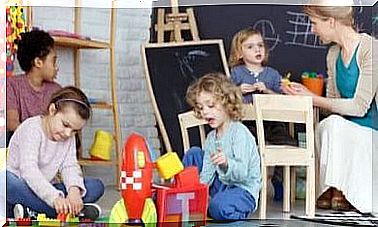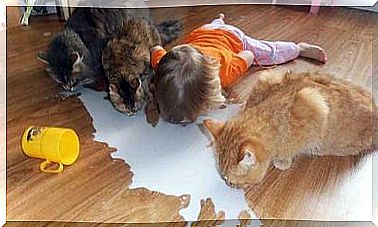Emotional Problems In Children: Causes, Symptoms And Treatment
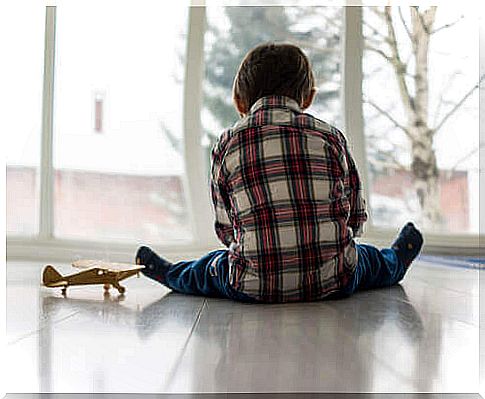
Emotional problems in children can affect their relationships with others, their behavior and their mood. Parents should therefore be able to detect these abnormalities and resolve them as quickly as possible before they harm the child’s development in any way.
Emotional problems are not unique to adults. Due to various circumstances, which may be internal or caused by the environment, children are also affected by situations that are harmful to their emotional health.
These occur when negative emotions have an unreasonably large impact on the child’s life. However, this does not mean that the importance of these feelings should be underestimated.
Negative emotions are very relevant in our lives. It is through fear that we protect ourselves from dangers. We defend ourselves against attacks by getting angry, and with the adrenaline, our abilities are strengthened when needed.
Emotional problems in children can be devastating to their physical and mental well-being. Here we will see how we can detect them and solve the problems.
The most common emotional problems in children
The emotional disorders that most often occur in children are:
- Lack of empathy: In these cases, children may not recognize other people’s feelings. Therefore, they do not notice if someone is sad, happy or angry. Nor are they capable of understanding why someone feels that way.
- Depression: This can be due to many different factors. Depression has a major impact on the child’s behavior and mood, as well as on school performance, how the child responds to others’ incentives and what the child’s relationships with others look like.
- Anxiety: Even if it is a defense mechanism against threats or danger, excessive anxiety or when it occurs completely unjustified can cause irritation, nervousness and restlessness. In addition, it also tends to be the cause of other physical problems, some of which can be really serious.
- Inability to endure frustration: This makes it impossible to accept rules, norms or situations that are not pleasant for the child. It is most often expressed through anger and aggressive behavior.
- Phobias: Excessive fears. Some may be related to everyday things like rain. Phobias cause major complications that affect the child’s mental stability and social life.
- Panic attacks: An intense fear followed by really upsetting physical symptoms.
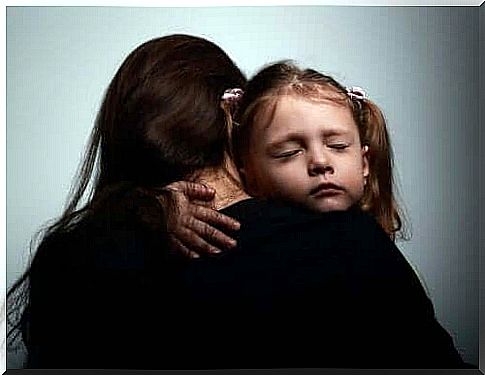
The most common causes of emotional problems in children
As I said, there are two different types of triggers for emotional problems in children:
Internal
These are linked to the emotional regulation of all human individuals.
Some characteristics of an individual that tend to cause emotional problems are: having an overly strong character, being very introverted, a lack of attention, insecurity or failure to absorb information.
External
The environment in which a child grows up has a great impact on his or her development. If you are part of a family where there is violence, aggression and negativity, your emotional stability is negatively affected.
The school environment is also just as important, as it offers children their first contact with people other than the family.
Therefore, it is important that there is no harassment or bullying. Other influences are, for example, bad relationships with teachers, not feeling like a valued member of the class and poor academic performance.
This is how you discover emotional problems in children
The first thing you need to consider is that your children will never tell you, “I have low self-esteem because I get criticism from my classmates.” Therefore, you need to pay attention to your child’s behavior, because that is where he or she shows all his or her depressed feelings.
If a child shows nervousness, such as biting his nails, shouting, breaking things or being aggressive, it can indicate a problem. There may also be physical symptoms such as palpitations, nausea or tense muscles.
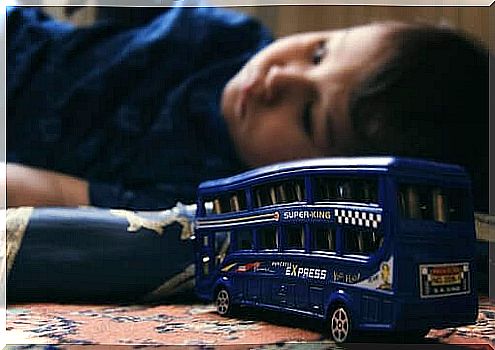
You should also pay attention to the behaviors your child does not show. If you notice that the child does not trust his or her abilities, that he or she has problems with a negative attitude or that it is difficult to form relationships with others, you should try to find out what the child thinks.
Tips for treating emotional problems in children
The best recommendation for children who experience emotional disturbances is to go to a professional. A psychologist or psychiatrist, for example, can create a developmental plan to teach the child to deal with the different emotions that arise in response to different situations. Emotional intelligence is the key to fighting this type of illness.
In addition, you must be present and involved in your child’s life. The best way to help children is by being understanding, open, willing to share their values and lessons at any time and above all, show the children that we are there for them when they feel something is wrong.



